Coronavirus daily news updates, January 20: What to know today about COVID-19 in the Seattle area, Washington state and the world
Jannie Delucca January 22, 2021Table of Contents
ToggleEditor’s note: This is a live account of COVID-19 updates from Wednesday, Jan. 20, as the day unfolded. It is no longer being updated. Click here to see all the most recent news about the pandemic, and click here to find additional resources.
In President Donald Trump’s final hours in office, the pandemic’s U.S. death toll eclipsed 400,000, almost exactly a year after the country recorded its first confirmed case of COVID-19.
Meanwhile, the nation is preparing for Joe Biden to step into the presidency and brainstorming what they want him to tackle first — many agree stopping the spread of the coronavirus is at the top of the list. Here’s what Washingtonians have on their minds on Inauguration Day.
We’re updating this page with the latest news about the COVID-19 pandemic and its effects on the Seattle area, the U.S. and the world. Click here to see previous days’ live updates and all our other coronavirus coverage, and here to see how we track the daily spread across Washington and the world.
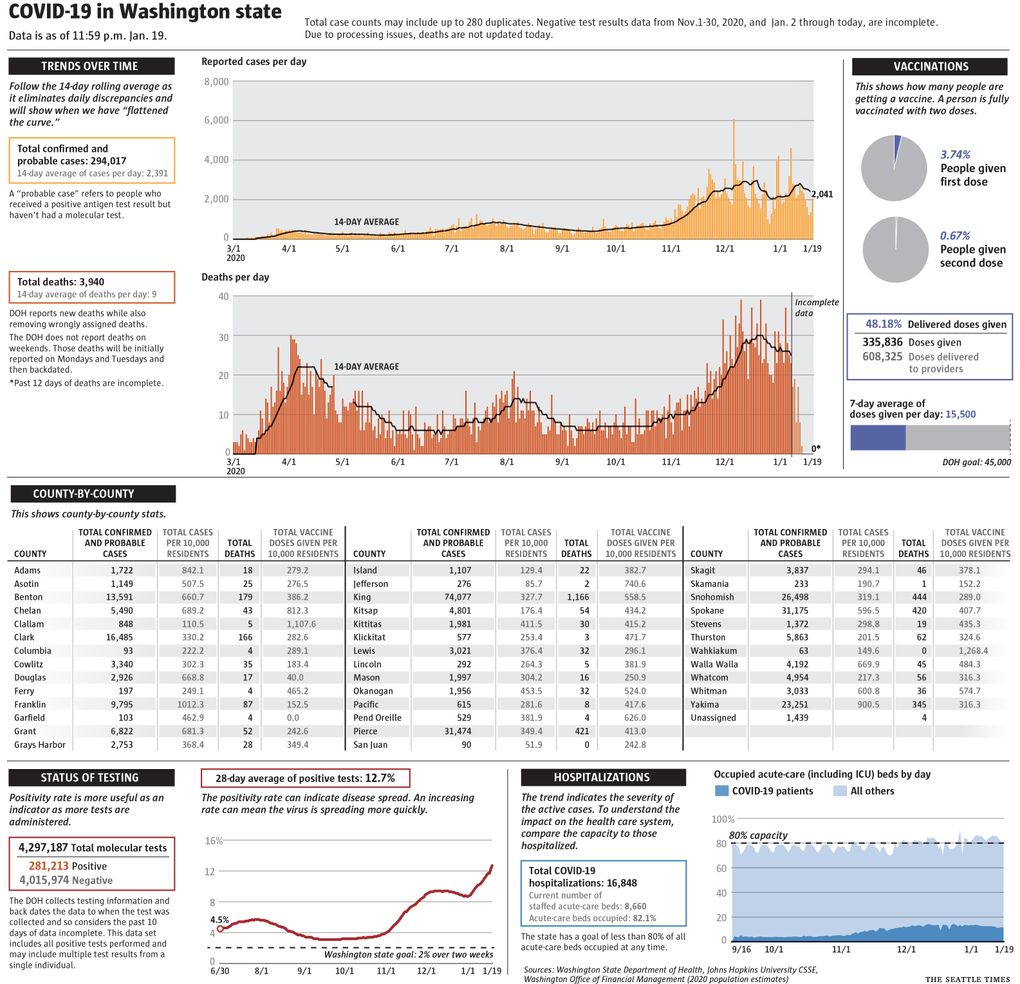
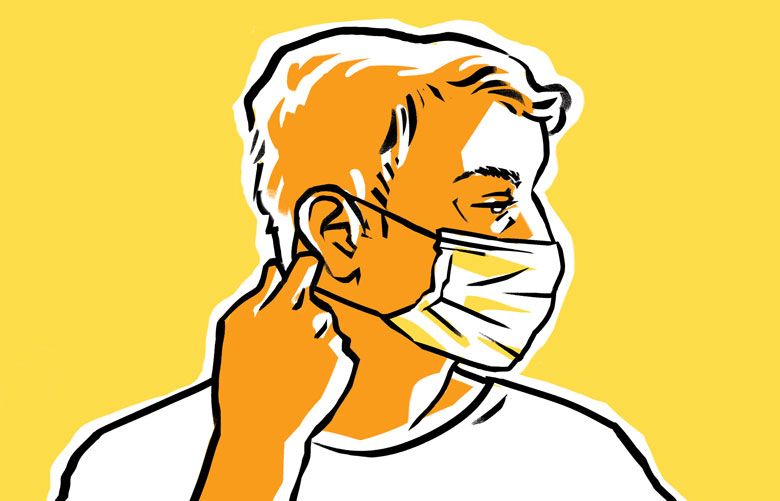
Bill to speed reopening of businesses draws lots of fans but faces uphill battle
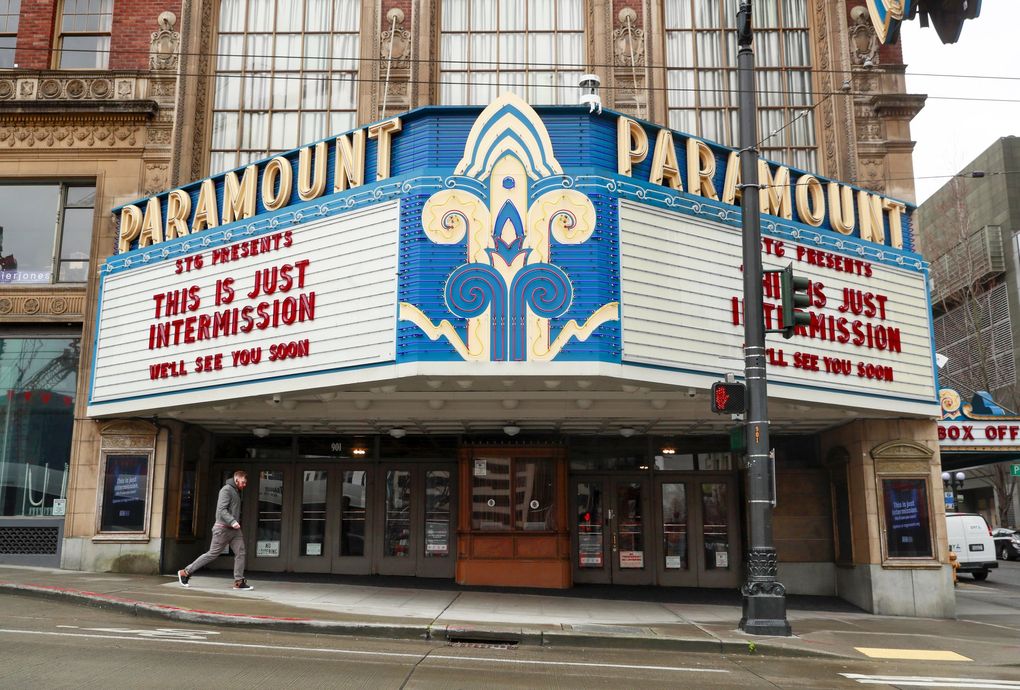
In a sign of mounting frustration over Washington’s COVID-19 restrictions, more than 1,500 people urged state lawmakers to support a bill that would speed the reopening of businesses and put legislators, not Gov. Jay Inslee, in charge of the process.
Of the 1,637 people who signed up for a hearing Wednesday on Senate Bill 5114, all but 89 registered support for the measure.
Backers say that lopsided result reflects rising impatience with Inslee’s reopening strategy, Healthy Washington-Roadmap to Recovery, which critics say is unjustified by public-health data and is moving too slowly to save many restaurants, gyms and other closed or partially closed businesses.
Wednesday’s turnout “should be sending a message that people want to find the [reopening] path that saves the businesses and protects public health,” said state Sen. Mark Mullet, D-Issaquah, a co-sponsor of the bill, after the hearing. Business owners are “being harmed and they don’t know what to do about it,” added Senate Minority Leader John Braun, R-Centralia, another co-sponsor.
But other lawmakers downplayed the show of support for the measure, which they said had been partly orchestrated by industry groups.
Read the full story here.
—Paul Roberts
Dentists to be part of the coronavirus vaccination effort in Washington state
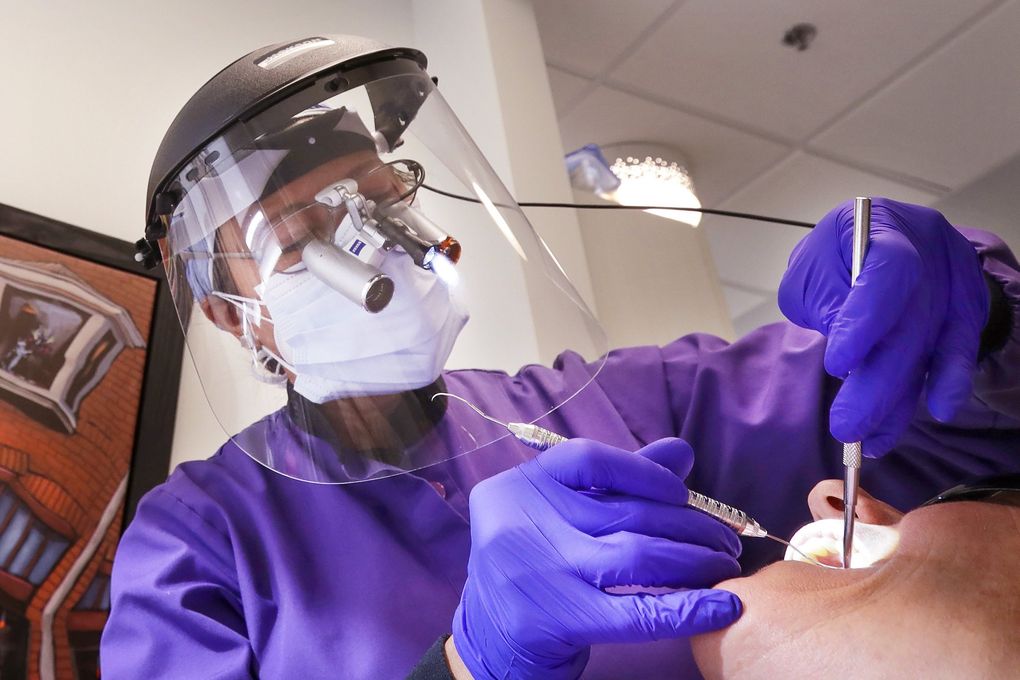
As vaccine supply expands, Washington’s dentists and hygienists plan to help immunize patients, and optometrists have lobbied to join in on the effort, too.
The state’s Dental Quality Assurance Commission on Jan. 7 finalized guidance allowing dentists to perform COVID-19 vaccinations. Dental hygienists will be allowed to administer these vaccines under supervision.
As the pace of vaccination grows, state leaders in dentistry expect the statewide effort to become an all-hands-on-deck effort, and they’ve been preparing for months to ensure they could help.
“Our objective was to have dentistry be part of the public health effort to get the vaccinations done. If the state is receiving thousands of doses of vaccine, but you don’t have people to administer them, you’re going to waste some doses,” said Dr. Gary Chiodo, the dean of the University of Washington School of Dentistry. “That becomes more critical as you move out of Seattle and King County and into rural areas.”
Dentists in Washington cannot administer other vaccines. The dentistry school and the Washington State Dental Association led the effort to become approved to administer vaccines for COVID-19.
Read the full story here.
—Evan Bush
UW women’s basketball forced to postpone Friday’s game against Oregon State due to COVID-19
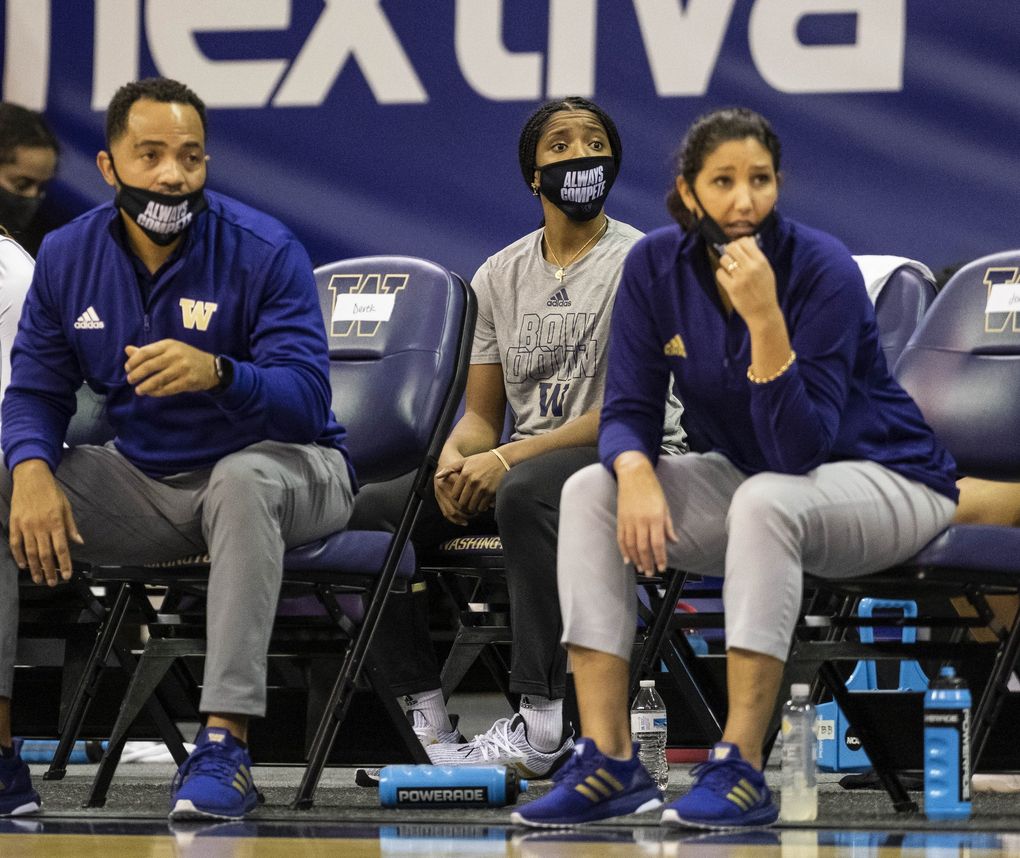
The Huskies returned to the court to practice last Saturday following a 10-day quarantine that wiped out four games and forced the Washington women’s basketball team to suspend activities after two players tested positive for COVID-19.
UW had hoped to also return to game action this week, but needed to postpone its game on Friday at Oregon State citing continuing “COVID-19 related issues.”
At the moment, Washington (4-5, 1-5 Pac-12) is still scheduled to play at No. 13 Oregon (9-3, 7-3) on Sunday.
On Monday during her weekly radio show on 950 KJR, coach Jody Wynn was noncommittal about when the Huskies would play again and said UW had just seven available players at the time.
“We got back (last Saturday) to do some skill work, no-contact work and low-intensity work,” Wynn said. “We went at it again on Sunday with something pretty similar. We’re not able to have contact until Wednesday. (Monday) was an off day.
Read the full story here.
—Percy Allen
Some COVID-19 mutations may dampen vaccine effectiveness
Scientists are reporting troubling signs that some recent mutations of the virus that causes COVID-19 may modestly curb the effectiveness of two current vaccines, although they stress that the shots still protect against the disease.
Researchers expressed concern Wednesday about the preliminary findings, in large part because they suggest that future mutations could undermine vaccines. The research tested coronaviruses from the United Kingdom, South Africa and Brazil, and was led by Rockefeller University in New York with scientists from the National Institutes of Health and elsewhere.
A different, more limited study out Wednesday gave encouraging news about one vaccine’s protection against some of the mutations.
One way vaccines work is to prompt the immune system to make antibodies that block the virus from infecting cells. The Rockefeller researchers got blood samples from 20 people who had received either the Moderna or Pfizer vaccine and tested their antibodies against various virus mutations in the lab.
With some, the antibodies didn’t work as well against the virus — activity was one-to-threefold less, depending on the mutation, said the study leader, Rockefeller’s Dr. Michel Nussenzweig.
—Associated Press
‘Your body just can’t handle it.’ Working from home has created new demand for physical therapy
Across the country, aching backs, necks and shoulders brought on by COVID-19-related lifestyle changes have sent many people to physical therapists — a trend that’s likely to continue in 2021.
In many cases, working from couches, dining tables and kitchen counters is taking a toll on people’s bodies. People are also getting injured when they start new exercise routines because their regular gyms closed, or they no longer want to go to them. And that’s to say nothing of the physical therapy some COVID-19 patients require after they recover.
Like many medical providers, physical therapists saw patient visits drop dramatically in early 2020, when the pandemic started. During those early months, 54% of physical therapists said they were working fewer hours, according to an American Physical Therapy Association survey.
In recent months, however, some local physical therapists say they’re seeing nearly as many patients as they did before COVID-19, with many of those people visiting for pandemic-related problems.
Read the story here.
—Lisa Schencker, Chicago Tribune
Seattle administers more than 575,000 COVID-19 tests
We have surpassed 575,000 tests at our COVID-19 testing sites! We could not have reached this milestone without @SeattleFire, our parking enforcement officers at @SeattlePD, and logistics support at FAS. Thank you for your hard work and your commitment to keeping Seattle safe.
— Mayor Jenny Durkan (@MayorJenny) January 21, 2021
Alaska reports 24 COVID-19 deaths, 1 described as recent
JUNEAU, Alaska — The state health department Wednesday announced 24 deaths of Alaskans related to COVID-19, with one of those deaths described as recent.
The others were confirmed following death certificate reviews “over the past several months,” the department said in a release. They included a man in his 40s and residents in their 60s, 70s and 80 or older.
The state has reported more than 50,700 confirmed resident cases of COVID-19, with 251 related deaths since the start of the pandemic.
Most regions of Alaska are considered at a high alert level, which the department said means there is widespread community transmission.
—Associated Press
State health officials confirm 2,041 new coronavirus cases
The state Department of Health (DOH) reported 2,041 new coronavirus cases on Wednesday, but did not report new deaths, citing “processing issues.”
As of 11:59 p.m. Tuesday, the state had counted 294,017 cases and calculated 1.3% of people diagnosed in Washington have died, according to DOH. Health officials expect an update on the total number of deaths, which they reported as 3,940 Tuesday, on Thursday.
The new cases may include up to 280 duplicates, according to DOH.
In addition, 16,848 people have been hospitalized in the state due to the virus — 206 new hospitalizations. In King County, the state’s most populous, state health officials have confirmed a total of 74,077 COVID-19 diagnoses and 1,166 deaths.
On Dec. 16, DOH’s case, hospitalization and death counts started including both confirmed cases and probable cases in its total count. According to DOH, probable cases refer to people who received a positive antigen test result but not a positive molecular test result, while confirmed cases refer to those who have received a positive molecular test result.
The DOH says its daily case reports may also include duplicate test results, results assigned to the wrong county, results that are reported for today but are actually from a previous day, occasional false positive tests and other data discrepancies. Because of this, the previous day’s total number of cases plus the number of new daily cases does not add up to the new day’s total number of cases.
—Elise Takahama
Belgium religious faiths want more worshippers at services
Representatives of the religious faiths recognized in Belgium have joined forces to urge federal authorities to increase the number of people admitted inside places of worship during the coronavirus pandemic.

Under the current COVID-19 rules, such places can accommodate up to 15 people. In a letter to Justice Minister Vincent Van Quickenborne, the religious representatives argued that the number of people allowed should instead be linked to the space available. They proposed a return to the “one person per 10 square meters” rule which applied in June last year when Belgium exited the spring lockdown.
“The use of this standard proved to be less restrictive for religious practice and at the same time very protective for public health,” they said in a statement on Wednesday.
The letter was signed by representatives from the Roman Catholic, Protestant-Evangelical, Jewish, Anglican, Muslim and Orthodox faiths.
Read the story here.
—The Associated Press
What would you do differently if you’d known COVID was coming?
What were you doing one year ago this week, as COVID-19 made what was then its first known appearance in the United States?
Maybe, around the same time a Snohomish County man tested positive for the novel coronavirus that was already ravaging China, you were watching “Fiddler on the Roof” in Seattle’s crowded Paramount Theatre, or looking forward to Pacific Northwest Ballet’s “Cinderella.” Or maybe you were training for Seattle’s Hot Chocolate 15K, where you’d look around on race day several weeks later and wonder nervously whether you should be there, the coronavirus starting to shadow your steps. (We would later learn the virus had been spreading silently for weeks before the Snohomish County case was detected.)
If you had known what was coming — the dizzying shutdowns of schools and businesses and places dear to the heart of public life, the soaring cases and deaths, the economic pain — would you have done anything differently? Perhaps stocked up on masks sooner, taken that last trip in a big hurry, or bought stock in a toilet-paper company? We’d like to know, and we may be sharing some of the responses in the days ahead.
More on the COVID-19 pandemic
—Kris Higginson
UW Medicine begins Phase 1B vaccinations
More than 10,000 Washingtonians have appointments at UW Medicine’s vaccine clinics as the state starts Phase 1B of the COVID-19 vaccine rollout.
Phase 1B includes those 65 and older as well as people 50 and older who live in multigenerational households.
“We’re really excited that this week we started vaccinating patients in the UW Medicine system,” said Lisa Brandenburg, president of UW Medicine Hospitals & Clinics, in an announcement Wednesday.
To date, UW Medicine has vaccinated more than 36,000 individuals, used 76 percent of its inventory, and has an overall waste rate of less than 1 percent, UW Medicine said.
—Christine Clarridge
Airfare hits record low due to weak travel demand
Average airfare hit a record low in the third quarter of last year with the pandemic-driven decline in travel.
The average U.S. domestic airfare was $245 in the July-to-September quarter of 2020, according to figures released Tuesday by the U.S. Department of Transportation.
That’s the lowest average quarterly airfare on record, based on inflation-adjusted data going back to 1995, and marked a nearly 30% decline from $349 a year earlier. The third quarter average fare was also down from $262 in the second quarter of 2020, which was the previous low.
The drop in airfare came as airlines struggled to attract passengers. The number of passengers was down about 68% in the third quarter compared with the same period a year ago. Data from Transportation Security Administration checkpoints show that passenger counts at airports are still down more than 60% on many days.
Read the story here.
—Kelly Yamanouchi,The Atlanta Journal-Constitution
Rapper Bow Wow apologizes for attending packed Houston club

Rapper Bow Wow apologized after Houston’s mayor called him out for attending a crowded gathering at a city nightclub during a weekend packed with concerts as Texas continues to grapple with the coronavirus.
Mayor Sylvester Turner took to Twitter on Sunday to let the Ohio rapper, whose real name is Shad Gregory Moss, know that the city was monitoring a football watch party Bow Wow was expected to attend.
“Other bars/clubs that are operating as restaurants, beyond capacity and social distancing requirements, please expect visits,” Turner tweeted.
Bow Wow also sounded off on Twitter to share his grievances, saying he wasn’t paid to appear and that he was there for a friend’s birthday party.
“Safe to say the mayor of houston hates my guts. I cant believe i get the blame for a whole weekend,” Bow Wow tweeted Monday morning. “I apologize if i did anything wrong. I love the city of houston.”
But Turner made clear that he doesn’t dislike Bow Wow and said the pandemic is not the time for concerts.
Read the story here.
—The Associated Press
Why medical tourism is drawing patients, even in a pandemic
On a cold February morning last year, as she lay curled up in a fetal position on her kitchen floor, Melissa Jackson called her manager at a New Jersey beauty salon to ask for some unpaid time off.
It was the sixth consecutive week that the 39-year-old beauty technician was unable to work full time because of the debilitating pain in her pelvis caused by endometriosis, a chronic condition triggered by the growth of uterine tissue outside of the uterus.
As her symptoms worsened, she started exploring options to get less costly medical care abroad.
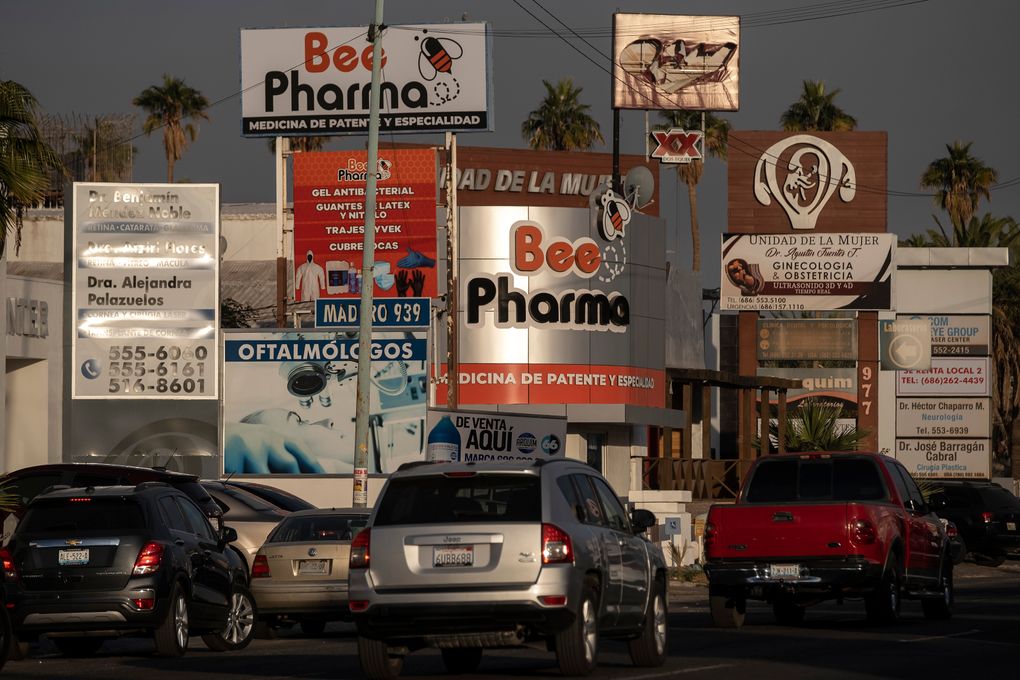
In recent years, while still on her ex-husband’s health insurance policy, she had received hormonal treatments to ease the pain so she could go about her daily life. But since her divorce last year and the coronavirus restrictions placed on the beauty industry in March, those treatment costs have become prohibitive, especially with no insurance.
“There is no real cure for endometriosis, but if I want to free myself from this pain then I need to get a hysterectomy,” Jackson said, her voice shaking as she described the procedure to remove her uterus. “As if the surgery isn’t bad enough, I need to find 20,000 bucks to pay for it, which is just crazy, so I’m going to have to find a way to go to Mexico.”
The coronavirus pandemic has pushed millions of Americans into poverty and stripped more than 5.4 million American workers of their health insurance, according to a study by the nonpartisan consumer advocacy group, Families USA. Many people like Jackson have experienced a significant deterioration in their health because they have delayed medical procedures. The fear of large medical bills has outweighed fear of contagion for some, giving rise to an increased number of patients seeking medical treatment in a foreign country.
Read the story here.
—Ceylan Yeginsu, The New York Times
As virus surges, states reporting shortages of vaccine
The push to inoculate Americans against the coronavirus is hitting a roadblock: A number of states are reporting they are running out of vaccine, and tens of thousands of people who managed to get appointments for a first dose are seeing them canceled.
About half of the 31 million doses distributed to the states by the federal government have been administered so far, though only about 2 million people have received the two doses needed for maximum protection against COVID-19, according to the Centers for Disease and Control and Prevention.
The full explanation for the apparent mismatch between supply and demand was unclear, but last week the U.S. Health and Human Services Department suggested that states had unrealistic expectations for how much vaccine was on the way.
The shortages are coming as states dramatically ramp up their vaccination drives, at the direction of the federal government, to reach people 65 and older, as well as other groups deemed essential or at high risk.
Read the story here.
—The Associated Press
Pandemic, surging food prices leave many in Asia hungry
United Nations agencies are warning that more than 350 million people in the Asia-Pacific region are going hungry as the coronavirus pandemic destroys jobs and pushes food prices higher.
The report issued Wednesday by four agencies says the pandemic is making it difficult for 1.9 billion people to afford healthy diets. It follows an earlier report that forecast that in a worst case scenario that 828 million people might suffer from acute hunger because of the crisis.
The latest estimate is that nearly 688 million people globally are undernourished, more than half of them in Asia. The largest share is in South Asian countries like Afghanistan, where four in 10 people are malnourished.
The report is mostly based on data up to 2019, before the pandemic struck. But it also estimates that an additional 140 million people were likely to have fallen into extreme poverty in 2020 due to the impact of virus outbreaks and lockdowns. By the end of last year, some 265 million were estimated to be facing acute food insecurity.
A key factor is food affordability, a problem in wealthy nations like Japan as well as impoverished places like East Timor and Papua New Guinea, said the report issued by the U.N. Food and Agriculture Organization, UNICEF, the World Food Program and the World Health Organization.
Disruptions and job losses due to the pandemic are preventing families from getting enough to eat in many places. That’s evident in the long lines seen at food banks even in the United States.
Read the story here.
—The Associated Press
Surgeon General resigns at Biden’s request
U.S. Surgeon General Jerome Adams resigned at President-elect Joe Biden’s request on Wednesday, as the incoming president sought to make a symbolic break with his predecessor’s covid-19 response.
“Thank you for the opportunity to serve this great Nation, as this has been the honor of my life,” Adams wrote in a departure note posted to Facebook. ” . . . I hope in 2021 and beyond, we can focus more on what unites us, and rise above what divides us.”
Read the story here.
—The Associated Press
Portugal sets records in one of world’s worst virus surges
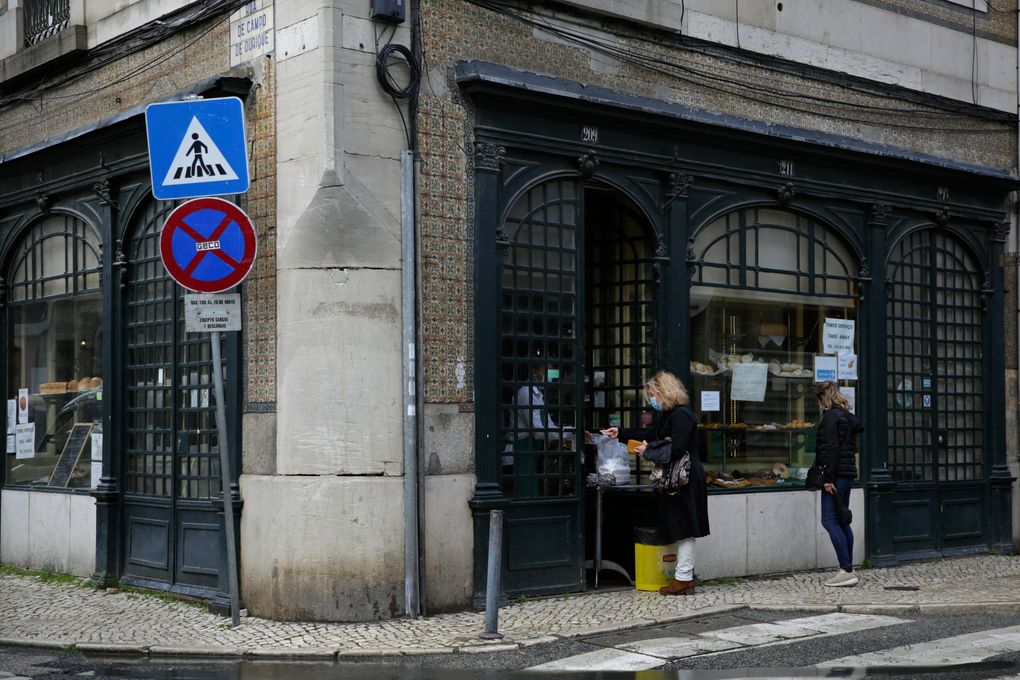
Portugal’s new daily COVID-19 cases jumped to more than 14,600 to set a new national record Wednesday, as the country weathers one of the worst pandemic surges in the world.
Health authorities officially reported 14,647 new infections — about 3,600 more than the previous daily record set four days ago.
The surge shows no sign of easing, with the government and health experts predicting it will peak next week.
Health authorities officially reported 14,647 new infections — about 3,600 more than the previous daily record set four days ago.
The surge shows no sign of easing, with the government and health experts predicting it will peak next week.
The number of COVID-19 patients in hospital and in intensive care also rose to new record highs, with 5,493 and 681, respectively.
The pandemic has gained momentum in Portugal since Christmas, when restrictions on gatherings and movement were eased for four days.
Portugal has the highest seven-day average rate in the world of new cases per 100,000 population and the second-highest rate of new deaths, according to data collated through Tuesday by Johns Hopkins University.
Read the story here.
—The Associated Press
India starts supplying COVID-19 shots to neighboring nations
India began supplying coronavirus vaccines to its neighboring countries on Wednesday, as the world’s largest vaccine making nation strikes a balance between maintaining enough doses to inoculate its own people and helping developing countries without the capacity to produce their own shots.
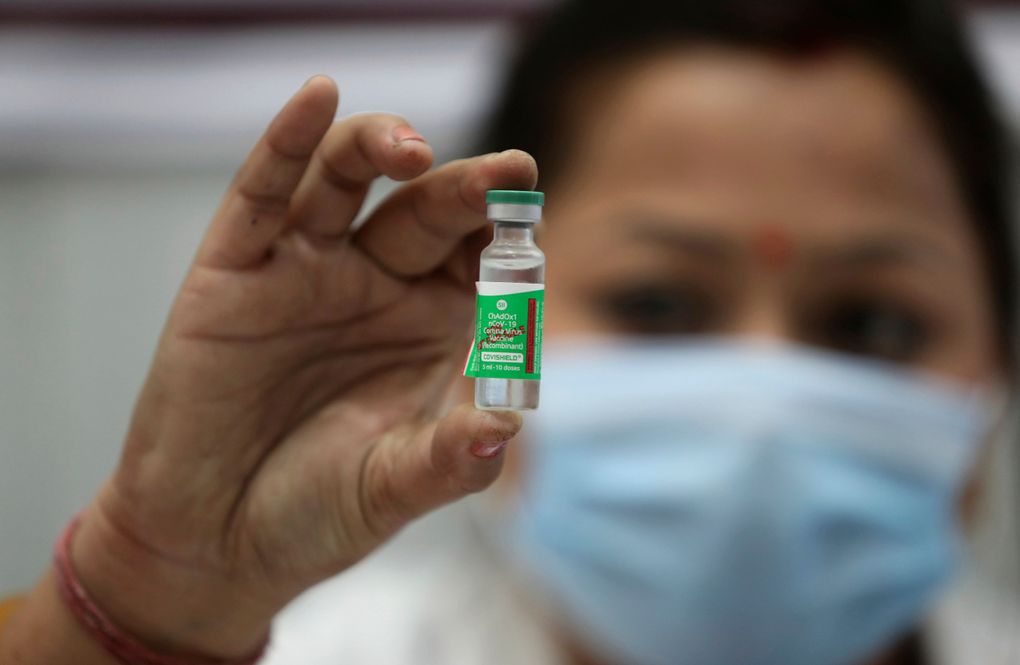
India’s Foreign Ministry said the country would send 150,000 shots of the AstraZeneca/Oxford University vaccine, manufactured locally by Serum Institute of India, to Bhutan and 100,000 shots to the Maldives on Wednesday.
Vaccines will also be sent to Bangladesh, Nepal, Myanmar and the Seychelles in coming weeks, the ministry said, without specifying an exact timeline. It added in a statement late Tuesday that regulatory clearances were still awaited from Sri Lanka, Afghanistan and Mauritius.
India’s ambassador to Nepal, Vinay Mohan Kwatra, said Wednesday that New Delhi would supply Nepal with 1 million doses free of charge, with the first to arrive as early as Thursday.
Read the story here.
—The Associated Press
Elderly begin to drop out of Novavax vaccine trial to get Pfizer and Moderna shots
Long Island physician Benjamin Luft began receiving urgent calls from his elderly clinical trial subjects almost as soon as New York followed numerous other states last week and announced it would begin vaccinating anyone 65 or older with one of two authorized coronavirus vaccines, those made by Pfizer and Moderna.
The subjects wanted to get out of the clinical trial Luft is helping oversee of an experimental vaccine made by another company, Novavax.
They wanted to be “unblinded” and find out if they had received a placebo in the Novavax study, and, if so, try to get the Pfizer and Moderna vaccines, which have already been proved to be about 95% effective at preventing coronavirus infections.
“The number who have been calling me has been significant, and the numbers are increasing,” Luft, an infectious-disease expert at Stony Brook University Hospital, said in an interview. Fresh recruits also have begun to dry up, he said: “As we are doing our recruitment, all of a sudden the people over 65 became less interested.”
Read the story here.
—Christopher Rowland, The Washington Post
Dutch propose curfew to rein in virus; will ban more flights
The Dutch government wants to impose a curfew as part of beefed-up restrictions to rein in the spread of a new more contagious virus variant that already accounts for at least one in every 10 Dutch infections.
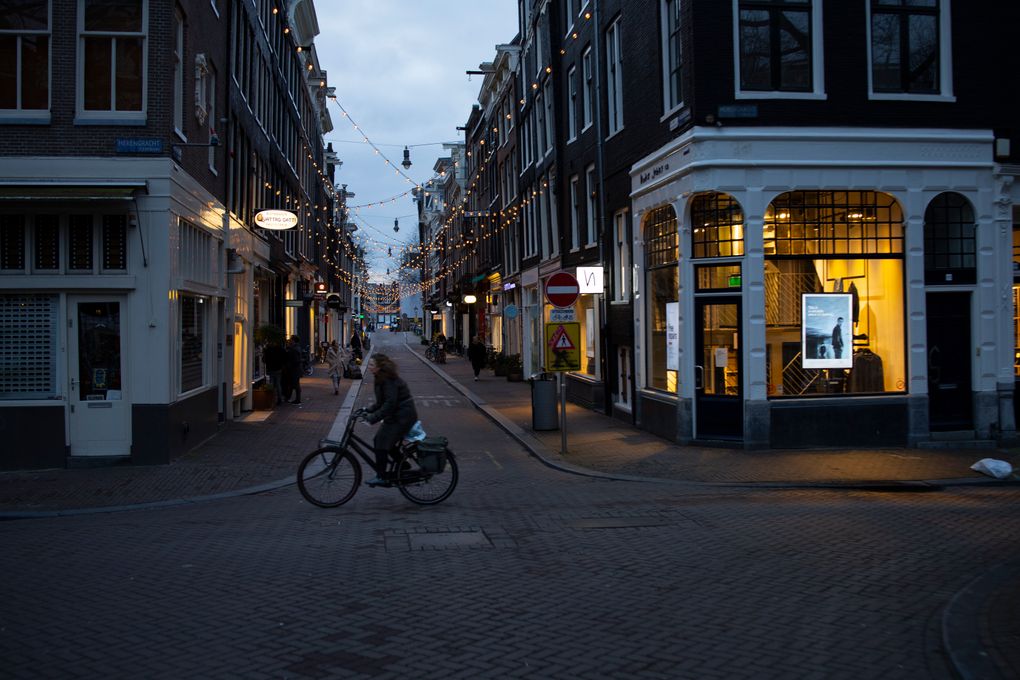
Prime Minister Mark Rutte said Wednesday that his government also will ban flights from the U.K., South Africa and South America beginning Saturday for a month.
With Rutte’s administration in caretaker mode since resigning last week, it will have to convince skeptical lawmakers to back the 8:30 p.m.-to-4:30 a.m. curfew before it can be enforced. A debate is expected Thursday and Rutte appealed for support, saying “we are at a crucial moment for our security, for our national public health.”
Read the story here.
—The Associated Press
China records new cases, defends response
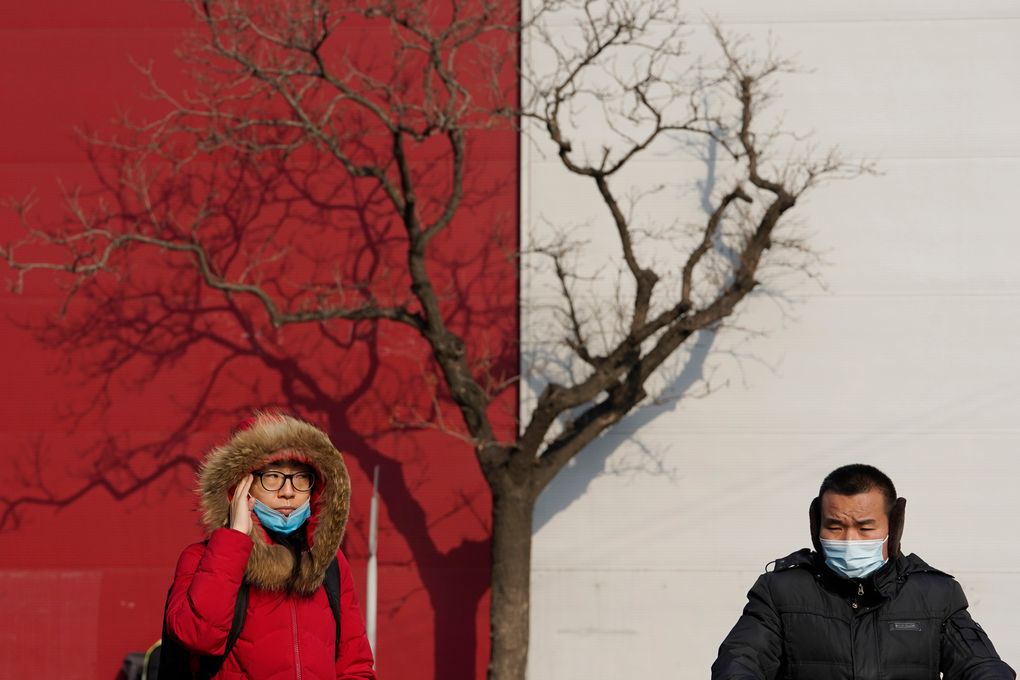
China’s capital, Beijing, recorded seven more coronavirus cases on Wednesday amid a lingering outbreak in the country’s north.
Another 46 were recorded in Jilin province, 16 in Heilongjiang on the border with Russia, and 19 in Hebei, the province surrounding Beijing.
China has now recorded a total of 88,557 cases since the virus was first detected in the central Chinese city of Wuhan in late 2019, with 4,635 deaths.
China is hoping to vaccinate 50 million people against the virus by mid-February and is also releasing schools early and telling citizens to stay put during the Lunar New Year travel rush that begins in coming days.
A panel of experts commissioned by the World Health Organization criticized China and other countries this week for not moving to stem the initial outbreak of the coronavirus earlier, prompting Beijing to concede it could have done better but also to defend its response.
“As the first country to sound the global alarm against the epidemic, China made immediate and decisive decisions and insisted on timely detection, reporting, isolation, and treatment despite incomprehensive information at the time. We have gained time to fight the epidemic and reduce infections and deaths,” Foreign Ministry spokesperson Hua Chunying told reporters on Tuesday.
Read the story here.
—The Associated Press
Seattle tops nation for COVID-19-era increase in online spending
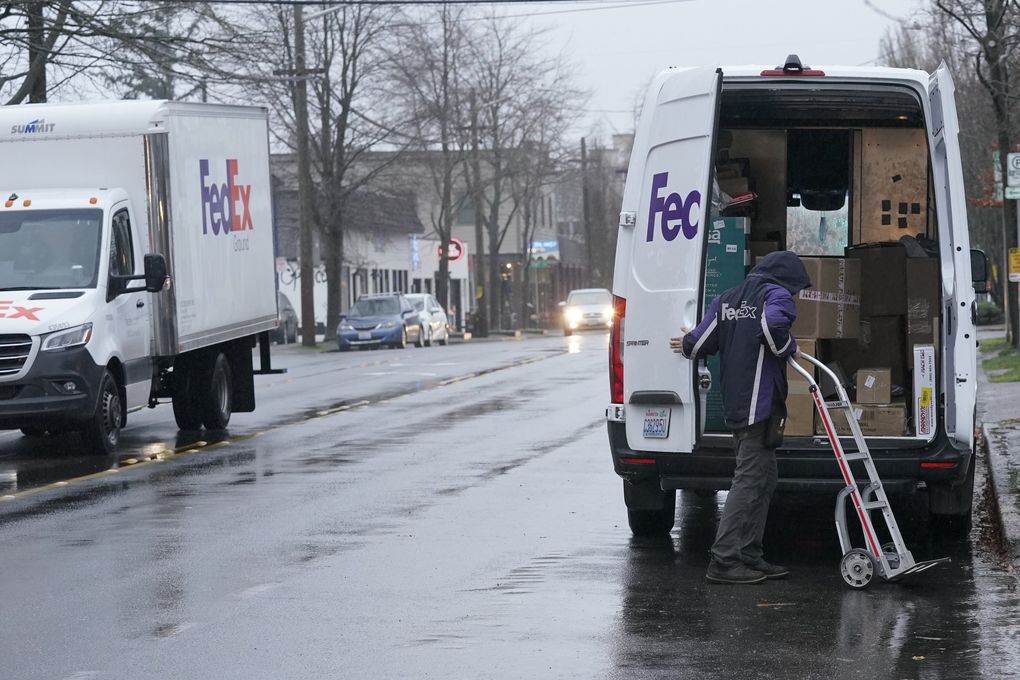
We don’t know yet all the ways that the coronavirus pandemic will change the world. But one that seems certain is that more of our lives will be lived online.
Many speculate that telecommuting will be a permanent change, and downtown office towers will forever be half-empty. And our urban downtowns face another potential threat: the end of brick-and-mortar retail.
Online shopping has exploded amid lockdowns, and profits have soared for online retailers — including Amazon, naturally.
And while across the U.S., consumers have increased their online shopping habits since the pandemic, nowhere is this trend more pronounced than in Seattle.
According to new survey data collected in mid-December, more than 2 million people who live in the Seattle metro area — 67% of the adult population — said that they have increased the amount of shopping they do online, based on their last seven days of purchases. That is more than 10 percentage points above the national average (55%), and ranks No. 1 among the 15 largest U.S. metro areas.
Read the column here.
—Gene Balk, FYI Guy
New CDC director takes over beleaguered agency amid crisis
As the coronavirus swept across the globe last year, the Centers for Disease Control and Prevention sank into the shadows, undermined by some of its own mistakes and stifled by an administration bent on downplaying the nation’s suffering.
Now a new CDC director is arriving to a mammoth task: reasserting the agency while the pandemic is in its deadliest phase yet and the nation’s largest-ever vaccination campaign is wracked by confusion and delays.
Dr. Rochelle Walensky, 51, an infectious-diseases specialist at Harvard Medical School and Massachusetts General Hospital, is expected to become CDC director this week — a time when the virus’s U.S. death toll has eclipsed 400,000 and continues to accelerate.
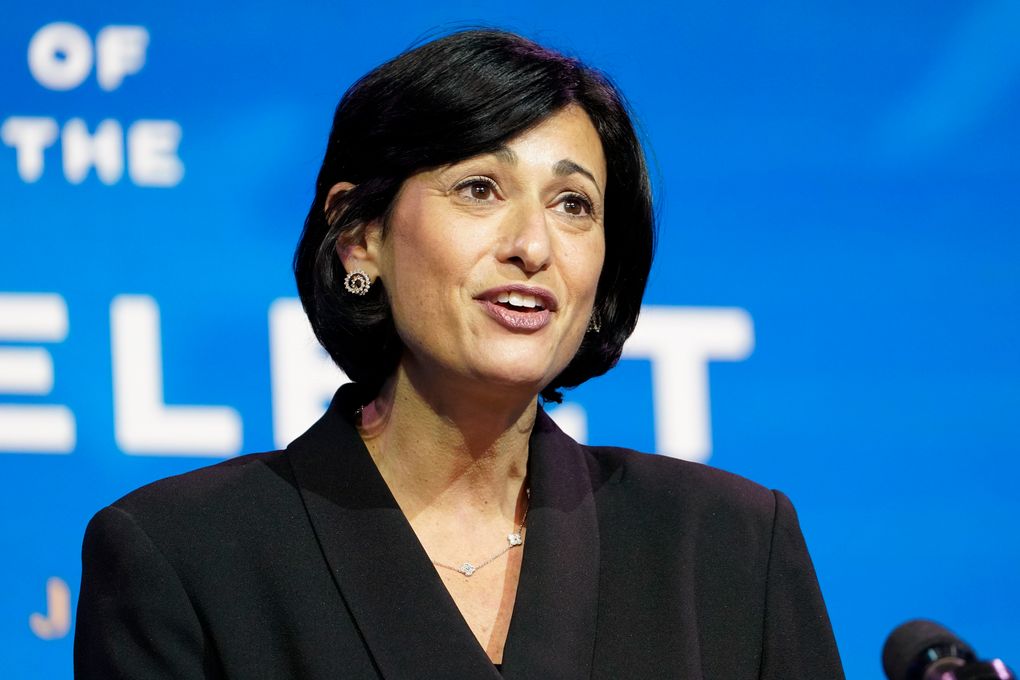
While the agency has retained some of its top scientific talent, public health experts say, it has a long list of needs, including new protection from political influence, a comprehensive review of its missteps during the pandemic and more money to beef up basic functions like disease tracking and genetic analysis.
Walensky has said one of her top priorities will be to improve the CDC’s communications with the public to rebuild trust. Inside the agency, she wants to raise morale, in large part by restoring the primacy of science and setting politics to the side.
Read the story here.
—Mike Stobbe, The Associated Press
Biden to ask Surgeon General Adams to resign
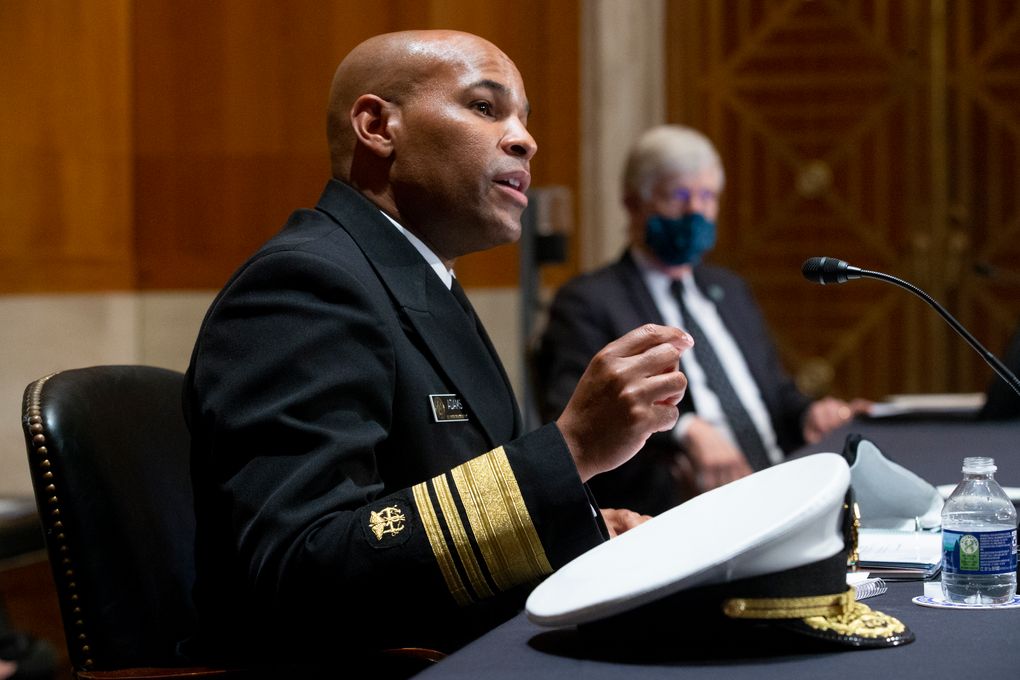
President-elect Joe Biden is expected to ask for the resignation of U.S. Surgeon General Jerome Adams after being sworn in Wednesday, ousting the nation’s top doctor in a symbolic break with his predecessor’s COVID-19 response, said two people with knowledge of the decision who spoke on the condition of anonymity because they were not authorized to discuss it.
Adams, who was nominated by President Donald Trump, was sworn in as surgeon general on Sept. 5, 2017, to serve the office’s standard four-year term, which expires this September. The anesthesiologist and former Indiana health commissioner — a political independent who crafted a close relationship with then-Indiana Gov. Mike Pence — had emerged as a key spokesman for Trump’s coronavirus response, regularly appearing on national TV and using social media to advocate for public health measures like social distancing. However, Adams’ visibility also made him a target last spring for Democrats, who accused him of defending Trump’s statements.
Biden has nominated Vivek Murthy, surgeon general under President Barack Obama and a close adviser of the president-elect, to be the nation’s new surgeon general, but Murthy first needs to undergo Senate confirmation hearings, which have yet to be scheduled.
Read the story here.
—The Washington Post
Biden to extend eviction moratorium through March
On his first day as president, Joe Biden plans to sign an executive order extending a freeze on evictions nationwide through the end of March, a move aimed at shielding millions of renters struggling during the pandemic.
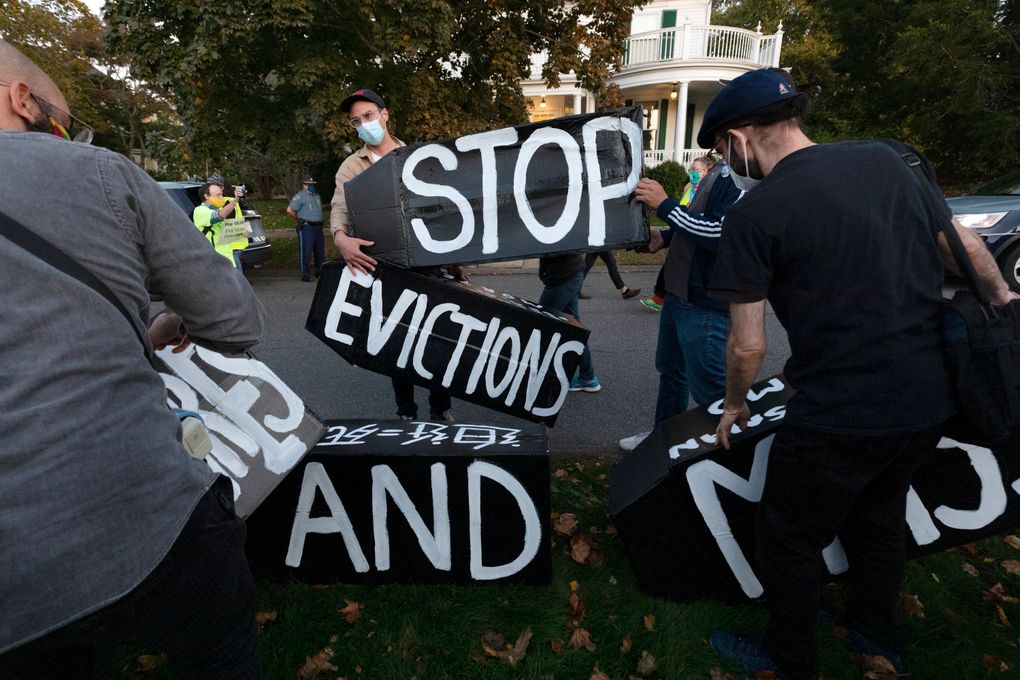
Biden officials said the new president will on Wednesday approve a raft of executive actions to address issues ranging from immigration to the public health crisis caused by the pandemic.
As part of this Day One action, Biden is expected to sign orders to extend the eviction moratorium and to pause student loan interest payments, while pushing Congress to approve the $1.9 trillion economic relief plan he unveiled last week.
Read the story here.
—The Washington Post
Biden to sign day one executive order to shift coronavirus-fighting strategy
President-elect Joe Biden plans to take his first steps Wednesday to demonstrate a new strategy to fight the coronavirus, signing executive orders to require masks on federal property, renew emphasis on biodefense and reengage with other nations trying to conquer the global health crisis.
These orders, which advisers say Biden will sign from the Oval Office in the afternoon after his swearing-in, follow through on commitments he made either during his campaign or after he won the November election.
In a briefing on the eve of the inauguration, senior aides portrayed these first-day actions as initial strategies within his grasp to reorient the federal effort to defeat the pandemic, which hit a grim milestone Tuesday of 400,000 deaths in the United States, exactly a year since the nation’s first case was detected.
Wednesday “starts a new, different approach to managing the COVID-19 crisis,” said Jeff Zients, who is becoming coordinator of the Biden White House’s coronavirus response. “This is clearly a national emergency, and we will treat it as such.”
Read the story here.
—The Washington Post
Catch up on the past 24 hours
• Where and when can you get your vaccine? Determining this hasn’t been easy for everyone, thanks to technical troubles with the state’s new online tool to help people find out their place in line … and then with the entire Department of Health website. Plus, hospitals are worried about whether they’ll have to cancel appointments and risk public outrage. Here’s what you need to know about the mass vaccination effort.
• How many doses have been given so far? Washington state is providing a new, updating look at this.
• You might get your coronavirus vaccine from a dentist. Washington’s dentists and hygienists are joining the vaccination effort, and optometrists want in, too.
• As Joe Biden takes the helm today, the nation’s accelerating death toll tops the entire population of New Orleans.
• A 50-cent smell test could eventually screen people for COVID-19.
—Kris Higginson
Seattle Times staff & news services





